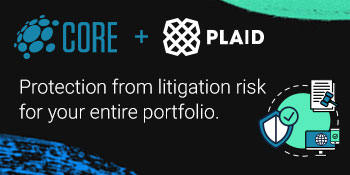Akari Therapeutics Announces Preclinical Data Supporting PH1 Spliceosome-Modulating ADC For AR-V7–Driven Prostate Cancer
Author: Benzinga Newsdesk | September 24, 2025 08:48am
Data highlights ability of Akari's ADC payload, PH1, to suppress the levels of the AR-V7 receptor that is responsible for driving hormone refractory prostate cancer progression
No current therapies have proven to be effective in AR-V7 driven tumors
BOSTON and LONDON, Sept. 24, 2025 (GLOBE NEWSWIRE) -- Akari Therapeutics, Plc (NASDAQ:AKTX), an oncology biotechnology company developing novel payload antibody drug conjugates (ADCs), today announced key preclinical data demonstrating the potential of its novel antibody drug conjugate (ADC) spliceosome modulating payload, PH1, for the treatment of tumors fueled by alternative splicing-drivers, such as the Androgen Receptor splice variant 7 (AR-V7) in prostate cancer.
AR-V7 is a key driver for progression of metastatic castration resistant prostate cancer (mCRPC). During progression of hormone-sensitive prostate cancer, many patients fail to respond to current first-line therapies known as Androgen Receptor Pathway Inhibitors (ARPIs), which include enzalutamide (Xtandi, $6B/annual sales), apalutamide (Erleada, $3B/annual sales) and darolutamide (Nubeqa, $1.6B/annual sales). Importantly, as patients lose ARPI response, their tumors transform and significantly increase in AR-V7 expression. As a result, there is an increasing and significant unmet need for targeted therapy options in ARPI-resistant hormone refractory patients, where there are currently limited options such as traditional chemotherapy like taxanes.
As referenced in the Company's recent patent filing, preclinical data demonstrated that Akari's ADC payloadPH1 is able to suppress the expression levels of the AR-V7 receptor in a hormone-refractory mCRPC model called 22Rv1. As a control, ARPIs had no effect on AR-V7 receptor expression in these experiments, which was expected given the refractory nature of these prostate cancer cell lines.
Surprisingly, in a different model, of hormone-sensitive LnCAP cells that express high levels of normal Androgen Receptor (i.e. ARPI sensitive) and lack AR-V7, PH1 demonstrated a benefit as a single agent, and additive effect when combined with either Xtandi or Erleada. The Company believes this combined efficacy data may potentially lead to the development of robust first-line combination regimens of Xtandi or Erleada with a PH1 payload conjugated ADC (PH1 ADC) to target prostate cancer that is sensitive to ARPIs. As progression is often linked to AR-V7 expression, and PH1 reduces AR-V7 expression, it is hypothesized that the combination of ARPI plus PH1 ADCs may slow the development of resistance and AR-V7-driven tumor progression which typically occurs after patients progress on Xtandi or Erleada. Akari has plans to test this hypothesis using PH1 ADCs against different prostate cancer targets in future research.
Posted In: AKTX




